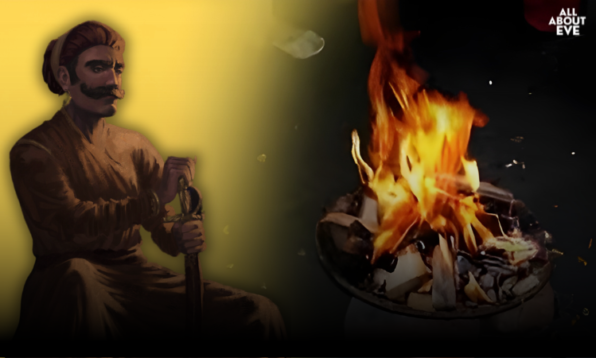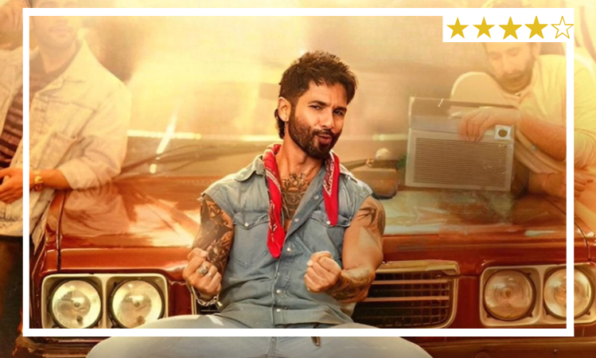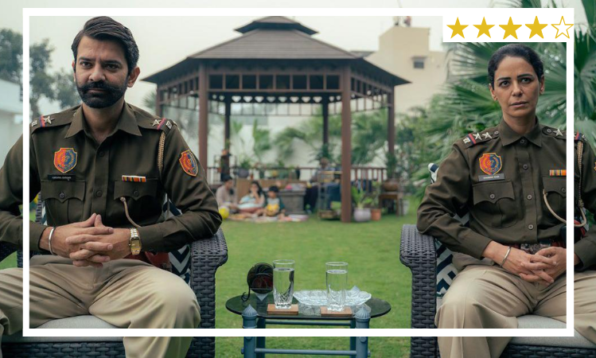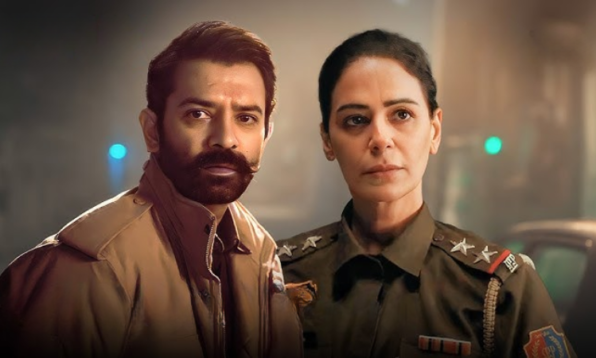Lohri, a festival synonymous with bonfires, joyous dance, and revelling in the biting cold of January, holds a special place in the hearts of Punjabis. It marks the end of the winter sowing season and celebrates abundance in harvest. But at its core lies a powerful story of defiance and justice. This is Dulla Bhatti’s story, the Robin Hood of Punjab, whose legacy is intricately woven into the fabric of Lohri.
Dulla Bhatti: The Legend Of Lohri
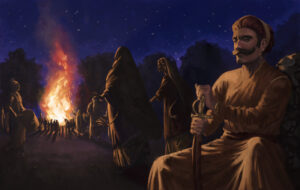
The story of this folk legend can be traced to the 16th century, to a small village called Pindi Bhattian, now in Pakistan. The Bhatti clan controlled the region. They were Rajput Muslim chieftains who enjoyed influence during the Lodi era but were overpowered by the Mughals as Humayun extended his empire westward.
Under Mughal rule, feudal lords were tasked with collecting revenue from peasants. This system, perceived as extortion, turned the Bhattis rebellious. Bijal Bhatti and his son Farid were leading the fight but they were ultimately executed for treason during Akbar’s reign. Months after Farid’s execution in 1547, his widow gave birth to a son, Rai Abdullah Khan, affectionately called Dulla. However, to protect him, his mother kept the truth about his father’s death a secret.
Dulla Bhatti’s carefree childhood changed forever when a village woman scolded him for not honouring his ancestors’ bravery. Curious, he urged his mother to tell him the truth about his father’s death. Learning of his family’s sacrifices ignited a determination in Dulla to continue their fight for justice.
Rai Abdullah Khan raised an army and began targeting Mughal caravans and landlords, redistributing their wealth among the poor. His actions earned him the title of a ‘social bandit.’ Farmers and traders, burdened by heavy taxes, rallied behind him. His defiance became a symbol of resistance in Punjab, especially as Akbar shifted his capital to Lahore to quell unrest in the region.
The story behind Sunder Mundariye, the famous Lohri song
Dulla Bhatti’s compassion extended to protecting vulnerable women as well. Abduction and forceful marriages of young girls were common in the 16th century. Therefore, Dulla took it upon himself to rescue these girls and arrange their marriages. He would even provide dowries for the brides, ensuring their dignity and security, becoming a father figure to many.
The most famous story recounts how he saved a girl named Mundri from an oppressive zamindar and ensured she married a suitable groom on Lohri. This act cemented his connection to the festival, symbolising honour and justice. This story gave birth to the song, Sunder Mundariye, the most famous song of Lohri.
“Sunder mundariye! Tera kaun vichara ho? Dulla Bhatti wala ho!“
These lyrics highlight Dulla Bhatti’s benevolence and defiance, keeping his spirit alive in Punjab’s cultural memory. Many songs sung around Lohri bonfires often pay homage to him.
The legacy of resistance
Dulla Bhatti’s rebellion eventually led to his capture. The Mughals executed him in Lahore on March 29, 1599. It is said that Sufi poet Shah Hussain, an admirer of Dulla’s struggle, witnessed his execution and penned the line:
“Kahay Hussain Faqeer Sain Da Takht Na Milde Mange”
(Says this lowly faqir, thrones are not gained by merely asking).
Despite his tragic end, Dulla Bhatti’s story lives on as a symbol of courage, justice, and humanity. His story reminds us that the essence of the Lohri festival isn’t merely in its rituals but in its spirit – the spirit of resistance, generosity, and community.
Related: 5 Easy Recipes To Make This Lohri Scrumptious And Healthy

 Web Stories
Web Stories
